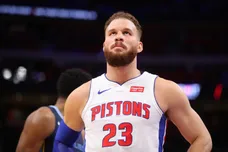During a recent interview with US Rap News, Big K.R.I.T. speaks in lengths about the role of sampling in contemporary hip hop, and the problems it is increasingly presented for artists who use them. The Mississippi-bred rapper and producer, in correspondence from France with the Rap News’ 1on1 series, gets down to the basic ideas of sampling, and demonstrates how idea appropriation is an every-day inevitable phenomenon. The King Remembered in Time, whose very name speaks to preservation and torch-carrying, has personally experienced delays in releasing albums because of issues clearing samples. In a world where rap lawsuits are confined more and more to purely artistic “crimes” (Kanye West’s court battle as the most recent example), K.R.I.T. is clearly tempted to resign to his cynicism:
“The difference with music is that it’s documented …mixtapes has always been a free thing…growing up, mixtapes that I listened to, I’m not gonna call them out, but there were artists rapping over other people’s instrumentals, or samples, or songs… and the fact that it was free was like, alright it’s ok. But I think now, nowadays it’s becoming to the point where it’s not ok, at all. And creatively I do think [this fact] takes away from music just a tad bit because ever since Muddy Waters people were replaying gospel records, redoing gospel records and turning them into you know shake jack songs, or club records…music has always been recreated and re-sampled, but I think more than ever, with technology, you can really tell what you sampled and where it came from. People want to get paid for it, so. It is what it is.”
The emcee makes a fair point about the rise in intricate production and music recognition technology since hip hop’s starting days, but does this mean that sampling will become less and less possible as the music world advances? Scott first seems to lean to towards ‘yes,’ but what follows is a frank admission that other artists might deign to recognize a little more often – that samples can benefit artists in other ways besides proprietary cash-grabbing rights. According to Big K, everyone could stand to be a tad more cooperative.
“At some point, I have to separate the artist and just look at the production side. Like, ‘this record would benefit me more if it’s not mine,’ that another artist, that might be more respected, might be more known uses this beat, promotes this track, performs this song, is promoting me just as much as if I would have rapped on it. And actually more, because I didn’t have to use any budget money, I didn’t have to go perform it myself, I can still be at- I’m in the studio creating more. So, with that in mind, alright, if it’s jamming, it might not fit me one hundred percent, I’ll give it to the lawyers, I’ll sell it to the lawyers. But trust me, every beat that I’ve given to somebody, I’ve sold, I’ve wrote a verse to, wrote a hook to, rapped on, because in the beginning, it always felt like it was for me. “
No doubt the Def Jam player hits the nail on the head with this last statement– artistic credit is a personal and pride-ridden thing, which needs to be either respected or relinquished. The future of sampling could very well depend on it.







